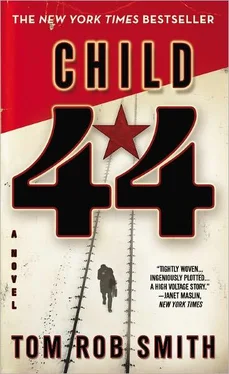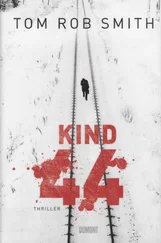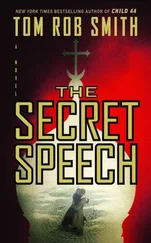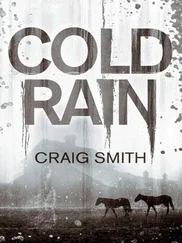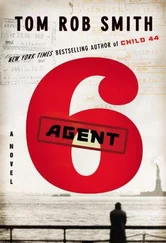Soviet Union
Ukraine
Village of Chervoy
25 January 1933
Since Maria had decided to die, her cat would have to fend for itself. She’d already cared for it far beyond the point where keeping a pet made any sense. Rats and mice had long since been trapped and eaten by the villagers. Domestic animals had disappeared shortly after that. All except for one, this cat, her companion which she’d kept hidden. Why hadn’t she killed it? She needed something to live for; something to protect and love — something to survive for. She’d made a promise to continue feeding it up until the day she could no longer feed herself. That day was today. She’d already cut her leather boots into thin strips, boiled them with nettles and beetroot seeds. She’d already dug for earthworms, sucked on bark. This morning in a feverish delirium she’d gnawed the leg of her kitchen stool, chewed and chewed until there were splinters jutting out of her gums. Upon seeing her the cat had run away, hiding under the bed, refusing to show itself even as she’d knelt down, calling its name, trying to coax it out. That had been the moment Maria decided to die, with nothing to eat and nothing to love.
Maria waited until nightfall before opening her front door. She reckoned that under the cover of darkness her cat stood a better chance of reaching the woods unseen. If anyone in the village caught sight of it they’d hunt it. Even this close to her own death, the thought of her cat being killed upset her. She comforted herself with the knowledge that surprise was on its side. In a community where grown men chewed clods of earth in the hope of finding ants or insect eggs, where children picked through horse shit in the hope of finding undigested husks of grain and women fought over the ownership of bones, Maria was sure no one believed that a cat could still be alive.
Pavel couldn’t believe his eyes. It was awkward, thin, with green eyes and black speckled fur. It was unmistakably a cat. He’d been collecting firewood when he saw the animal dart from Maria Antonovna’s house, cross the snow-covered road and head towards the woods. Holding his breath, he glanced around. No one else had spotted it. There was no one else about; no lights at the windows. Wisps of smoke, the only sign of life, rose from less than half the chimney stacks. It was as though his village had been snuffed out by the heavy snowfall, all signs of life extinguished. Much of the snow lay undisturbed: there were hardly any footprints and not a single path had been dug. Days were as quiet as the nights. No one got up to work. None of his friends played, staying in their houses where they lay with their families huddled in beds, rows of enormous sunken eyes staring up at the ceiling. Adults had begun to look like children, children like adults. Most had given up scavenging for food. In these circumstances the appearance of a cat was nothing short of miraculous — the re-emergence of a creature long since considered extinct.
Pavel closed his eyes and tried to remember the last time he’d eaten meat. When he opened his eyes he was salivating. Spit ran down the side of his face in thick streams. He wiped it away with the back of his hand. Excited, he dropped his pile of sticks and ran home. He had to tell his mother, Oksana, the remarkable news.
Oksana sat wrapped in a woollen blanket staring at the floor. She remained perfectly still, conserving energy as she devised ways of keeping her family alive, thoughts which occupied her every waking hour and every fretful dream. She was one of the few who’d not given up. She would never give up. Not as long as she had her sons. But determination itself wasn’t enough, she had to be careful: a misjudged endeavour could mean exhaustion and exhaustion invariably meant death. Some months ago Nikolai Ivanovich, a neighbour and friend, had embarked on a desperate raid upon a State granary. He had not returned. The next morning Nikolai’s wife and Oksana had gone looking for him. They’d found his body by the roadside, lying on his back — a skeletal body with an arched, stretched stomach, his belly pregnant with the uncooked grain he’d swallowed in his dying moments. The wife had wept while Oksana had removed the remaining grain from his pockets, dividing it between them. On their return to the village Nikolai’s wife had told everyone the news. Instead of being pitied she’d been envied, all anyone could think about were the handfuls of grain she possessed. Oksana had thought her an honest fool — she’d put them both in danger.
Her recollections were interrupted by the sound of someone running. No one ran unless there was important news. She stood up, fearful. Pavel burst into the room and breathlessly announced:
— Mother, I saw a cat.
She stepped forward and gripped her son’s hands. She had to be sure he wasn’t imagining things: hunger could play tricks. But his face showed no sign of delirium. His eyes were sharp, his expression serious. He was only ten years old and already he was a man. Circumstances demanded that he forgo his childhood. His father was almost certainly dead, if not dead then dead to them. He’d set off towards the city of Kiev in the hope of bringing back food. He’d never returned and Pavel understood, without needing to be told or consoled, that his father would never return. Now Oksana depended upon her son as much as he depended upon her. They were partners and Pavel had sworn aloud that he’d succeed where his father had failed: he’d make sure his family stayed alive.
Oksana touched her son’s cheek.
— Can you catch it?
He smiled, proud.
— If I had a bone.
The pond was frozen. Oksana rooted through the snow to find a rock. Concerned that the sound would attract attention she wrapped the rock in her shawl, muffling the noise as she punctured a small hole in the ice. She put the rock down. Bracing herself for the black, freezing water she reached in, gasping at the cold. With only seconds before her arm became numb she moved quickly. Her hand touched the bottom and clutched nothing but silt. Where was it? Panicking, she leant down, submerging all of her arm, searching left and right, losing all feeling in her hand. Her fingers brushed glass. Relieved, she took hold of the bottle and pulled it out. Her skin had turned shades of blue, as though she’d been punched. That didn’t concern her, she’d found what she was looking for — a bottle sealed with tar. She wiped away the layer of silt on the side and peered at the contents. Inside was a collection of small bones.
Returning to the house, she found Pavel had stoked the fire. She warmed the seal over the flames, tar dripping onto the embers in sticky globs. While they waited, Pavel noticed her bluish skin and rubbed her arm, restoring the circulation, ever attentive to her needs. With the tar melted, she tipped the bottle upside down and shook. Several bones snagged on the rim. She pulled them free, offering them to her son. Pavel studied them carefully, scratching the surface, smelling each one. Having made his selection he was ready to leave. She stopped him.
— Take your brother.
Pavel thought this a mistake. His younger brother was clumsy and slow. And anyway the cat belonged to him. He’d seen it, he’d catch it. It would be his victory. His mother pressed a second bone into his hand.
— Take Andrei.
Andrei was nearly eight years old and he loved his older brother very much. Rarely going outside, he spent most of his time in the back room, where the three of them slept, playing with a pack of cards. The cards had been made by his father from sheets of paper sliced into squares and pasted together, a parting gift before he’d set off for Kiev. Andrei was still waiting for him to come home. No one had told Andrei to expect anything different. Whenever he missed his father, which was often, he’d deal the cards out on the floor, sorting them by suits and numbers. He was sure if he could just finish the pack then his father would come back. Isn’t that why he’d given him the cards before he’d left? Of course, Andrei preferred playing with his brother but Pavel no longer had time for games. He was always busy helping their mother and only ever played at night just before they got into bed.
Читать дальше
